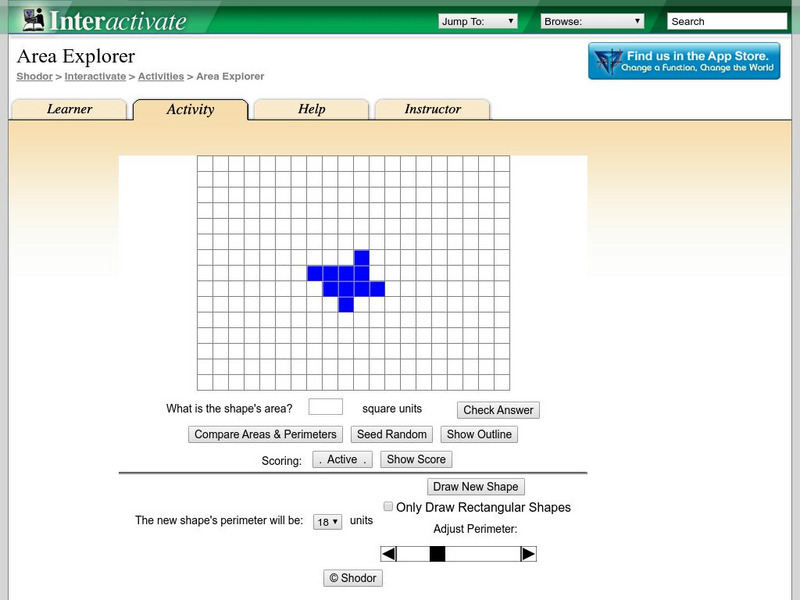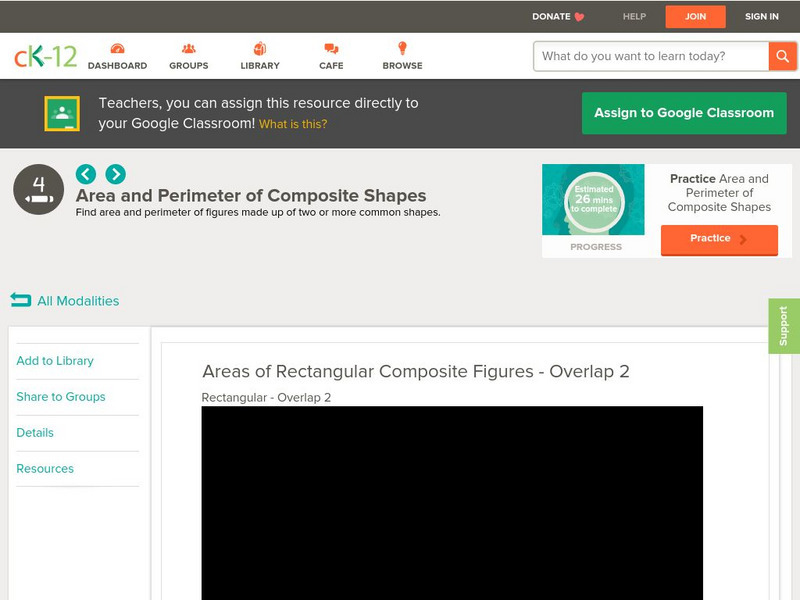Hi, what do you want to do?
Curated OER
Let's Tesselate
Students investigate the geometrical concepts of translation, reflection, and rotation. They make different observations looking for the concepts that are displayed in classroom items like floor tiles, carpet designs, and visuals hung in...
Curated OER
Stained Glass Critter
Students investigate the the origination of stained glass in the 12th century cathedrals.
They practice writing their names in cursive symmetrically. Students also practice how to make a stained glass image.
Curated OER
Mondrian Inspired Abstract Art
Students explore the art of Piet Mondrian. In this abstract art lesson, students look at paintings by the Dutch painter and then follow the provided steps to create their own abstract art inspired by his works.
Curated OER
Dynamic River Model
Students develop the concepts of flood stage, levees, floodplain, and the dynamics of river flooding. They construct river models and test various flow rates and volumes. This lesson has an excellent experiment for students to do.
Curated OER
Fantasy Faces: Gargoyles
Young scholars create gargoyles out of paper mache. Instructions for making paper mache pulp are included.
Curated OER
Cut Up Painting
Students work on color planning and painting skills and reinforce principles of design. They alter a work of art to create a low relief assemblage.
Curated OER
Ship-Fish or Fish-Ship
Students read two books about fishing and ships. After viewing portraits, they identify and describe the various types of sailing vessels. They discuss how the artist showed water and detailed the areas around the ships. They create...
Curated OER
Puebla Patterned Pots
Sixth graders examine and discuss the characteristics of tin glazed earthenware pottery of Colonial Mexico. They design and create their own Talavera-style plate by applying the concept of radial symmetry.
Curated OER
Footprint Detectives: Making Inferences Using Dinosaur Trackways
Students analyze and discuss footprints and dinosaur tracks. They listen to books about paleontologists, create and analyze their own trackways using black paper and chalk, examine the data, and form hypotheses about footprints and...
Curated OER
Rainforest Introduction
First graders create parrots and butterflies by using art materials to introduce them to rainforest animals. In this art lesson plan, 1st graders then use these animals to create a class rainforest.
Curated OER
Shattered Images Value Study
Students create cubist drawings using grids and enlargement.
Shodor Education Foundation
Shodor Interactivate: Area (Elementary)
In this lesson students will practice finding the area of rectangular shapes and irregular shapes with right angles and understand why the area formula works for rectangular shapes. CCSS.Math.Content.3.MD.C.5.b A plane figure which can...
CK-12 Foundation
Ck 12: Elem Math: Areas of Rectangular Composite Figures Overlap 2
[Free Registration/Login may be required to access all resource tools.] A video and practice questions where students are presented with a rectangle that has shaded areas. They must calculate the area of the unshaded region. [1:48]
CK-12 Foundation
Ck 12: Elem Math: Areas of Rectangular Composite Figures Overlap 1
[Free Registration/Login may be required to access all resource tools.] A video and practice questions where students are presented with one or more smaller rectangles within a larger one. They must calculate the area of the larger...
Illustrative Mathematics
Illustrative Mathematics: 3.md Three Hidden Rectangles
The purpose of this task is for students to decompose a figure into rectangles and then find the total area by adding the area of all of its smaller, non-overlapping rectangles. Aligns with 3.MD.C.7.d.
Cut the Knot
Cut the Knot!: Polygons: Formality and Intuition
This is a very interesting site about polygons. The site begins by distinguishing between shapes whose sides intersect and polygons whose sides do not overlap. After this short introduction, you will find information regarding area and...



















